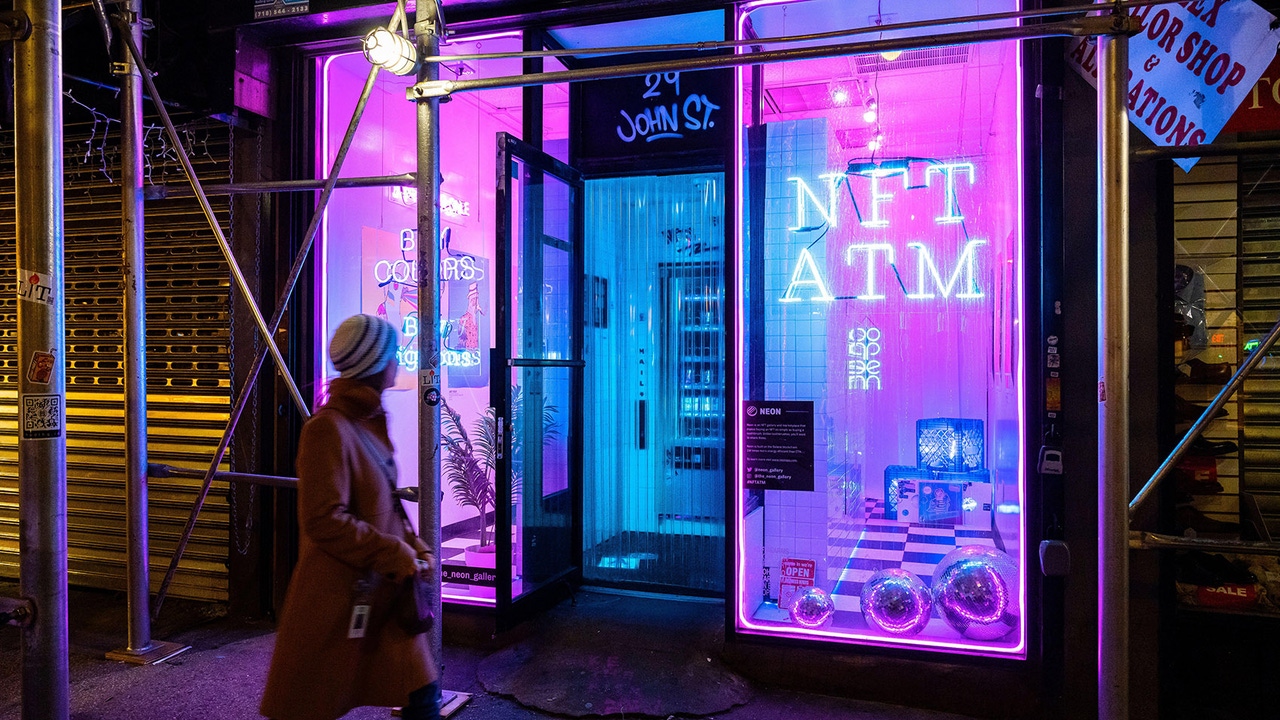What Lawyers Want You to Know About NFTs
NFTs have a rocky history, and for good reason: Buyers and sellers aren’t thinking things through enough.

Non-fungible tokens (NFTs) have gained traction in the art and collectables sector, though there are many other use cases including games, insurance, real estate, and automobiles to name a few. As is typical, technology innovation outpaces laws and regulations, though case law is now demonstrating that buyers and sellers must think critically about what they’re buying and selling, respectively.
One fundamental question is, who can mint an NFT? The technological answer is anyone, but legally speaking, it should only be the person or organization that owns the underlying intellectual property (IP) -- specifically, the copyright or trademark.
“Common issues revolve around disputes over intellectual property rights, where disagreements between creators and buyers arise concerning ownership and usage rights. Another significant challenge is the prevalence of fraud with unsuspecting buyers falling victim to fake or misrepresented NFTs,” says Jamie E. Wright, founder of The Wright Law Firm. “It is crucial for those involved in selling NFTs to be open and clear about their offerings outlining ownership and usage rights explicitly to avoid misunderstandings and legal conflicts. Furthermore, it is vital to understand and adhere to intellectual property laws since these regulations can vary across jurisdictions and influence the value and enforceability of your NFTs rights.”
Copyright Issues
A common mistake buyers make is assuming that an NFT is something more than it is. According to Wright, IP concerns primarily revolve around the distinction between NFT ownership and the intellectual property rights associated with the content linked to the NFT.
“In many cases, purchasing an NFT does not grant the buyer ownership of the underlying intellectual property. For instance, in Dufoe v. DraftKings Inc., the court noted that the owner of a DraftKings NFT does not own the content associated with the NFT, such as the name or image of a player, or any intellectual property rights associated with that content. Instead, the buyer receives a limited, non-exclusive, non-transferable, revocable license to use the intellectual property rights embedded in the purchased NFT solely for viewing the associated content,” says Wright. “Similarly, in ‘Friel v. Dapper Labs, Inc.,’ it was highlighted that while purchasers may ‘own’ the NFT, they do not have rights to the underlying intellectual property depicted by the NFT. The value of the NFT is often tied to the platform's efforts in maintaining the marketplace and blockchain, rather than the inherent value of the digital asset itself.”
To draw a physical analogy, artwork purchased from a gallery typically includes certificate of authenticity. Now, imagine leaving the gallery with only the certificate.
“Paint arranged on canvas could be considered a copyrightable work. However, minting the same as an NFT simply encodes the data on the blockchain as an electronic certificate of authenticity and automatic, smart contract. In other words, the NFT is not protected by copyright as it’s simply encoded data. So, the purchaser essentially owns just a link to the artwork but not the underlying copyrights, unless those are specifically included in the sale, as one finds on the mintable platform,” says William Scott Goldman, managing attorney and founder at Goldman Law Group. “Typically, though, purchasers can only sell or transfer the NFT to others while the author reserves all rights in the underlying work, including reproduction rights, public display rights, distribution rights, and rights to derivative works. “
Sometimes, contract law could take precedence as it did in the recent Miramax v.Tarantino case in which film and TV production and distribution company Miramax sued filmmaker Quentin Tarantino for breach of contract, copyright and trademark infringement, and unfair competition.
According to Tyler Ochoa, professor of law at Santa Clara University School of Law, when Quentin Tarantino announced his intention to make and sell a series of NFTs of excerpts from his screenplay to the movie Pulp Fiction, he was sued by Miramax, which produced and owns the copyright to the movie. Tarantino wrote the screenplay and retained the rights to publish it separately. The parties disagreed whether his retained rights included the right to make and sell NFTs based on the script. (Tarantino sold one NFT for $1.1 million; but after the NFT market collapsed, the parties settled, and no further NFTs were made or sold.)
"To avoid legal trouble, sellers of NFTs should make sure that they either own the copyright in the work of art associated with the NFT, or that they have the permission of the copyright owner to make and sell NFTs of the artwork,” says Tyler Ochoa, professor of law at Santa Clara University School of Law. “They should also avoid incorporating any other works of art or any trademarks that are owned by others. And if more than one person is involved in the project, such as an artist and an entrepreneur, they should clearly specify the rights and responsibilities of all parties to the project, and the division of any profits, in a signed, written agreement.”
Trademark Infringement
Trademark infringement is another significant concern. The Wright Law Firm’s Wright says as illustrated in Hermès Int'l v. Rothschild, the creation and sale of "MetaBirkins" NFTs, which depicted faux-fur versions of Hermès' Birkin handbags, led to claims of trademark infringement, trademark dilution, and cybersquatting.
“[The Hermes Int’l v. Rothchild] case underscores the potential for NFTs to infringe on existing trademarks, especially when they replicate or closely imitate well-known brands without authorization,” says Wright. “Moreover, the case Yuga Labs, Inc. v. Hickman involved the sale of counterfeit NFTs that used the plaintiff's marks to mislead consumers into believing they were purchasing legitimate products. This case highlights the risk of consumer confusion and the unauthorized use of trademarks in the NFT space.”
Specifically, she says a buyer should validate the authenticity of an NFT by:
Checking the token tracker and contract information to verify the creator
Using the blockchain to confirm the unique digital signature and ledger
Ensuring the initial minting was done by an authorized and legitimate creator
Sellers must understand and clearly articulate what the NFT does and does not include. According to Yuriy Brisov, partner at law firm D&A Partners, high-profile cases such as Hermès v. Rothschild and Nike v. StockX have highlighted the complexities of trademark law when applied to digital assets.
“A jury found Rothschild liable for trademark infringement, dilution, and cybersquatting, awarding Hermès $133,000 in damages and granting a global injunction,” says Brisov. “This case underscores the serious legal consequences of unauthorized use of trademarks in the NFT space. Meanwhile, the Nike v. StockX case, which is still ongoing, involves similar allegations of trademark infringement, illustrating that the legal parameters for NFTs are still being defined.”
Those offering NFTs should navigate this complex legal landscape with care. Sellers must ensure they have the rights to mint and sell NFTs, be vigilant about potential IP disputes, and stay informed about evolving regulations.
“Cases like Hermès and Nike demonstrate the importance of thorough due diligence before launching NFT collections,” says Brisov. “Additionally, sellers should be aware of the need for robust security measures. For instance, if an NFT tied to specific rights is stolen through a hack or mistakenly sent to the wrong address, the seller cannot simply mint a new NFT to replace it. Instead, they would need to prove the illegality or mistake of the previous transaction, potentially through court proceedings or intervention by authorities. This highlights the importance of securing digital assets and understanding the risks involved.”
Are NFTs Securities?
Players in the NFT space have increasingly run into securities law issues. Like cryptocurrency, a big question has been whether an NFT constitutes a “security” under US law.
“This is important because a security needs to be registered with the SEC or fall under an exemption,” says Jon Mechanic, partner at Rimon Law. “In the past year, there have been some interesting developments on this front, with the [SEC] finding that certain NFTs constitute ‘securities.’ To this end, it is very important that individuals navigating the NFT space assess whether they are compliant with securities law to avoid issues down the road.”
And that’s not all, in addition to intellectual property law, creators must comply with many different laws including securities law, tax law, advertising law and privacy law, especially if they’re collecting personal information from individuals.
“NFTs also provide a great opportunity for creators to benefit from downstream sales as opposed to only benefiting from the first sale,” says Mechanic. “To this end, NFT creators should consider taking steps to ensure that they obtain downstream royalties.”
For example, in 2021, Kings of Leon released an album as an NFT entitled “When You See Yourself in NFT Form.” Hollywood has made similar forays, according to Mechanic. He also thinks that NFTs may become an increasingly significant distribution medium through which movies, TV shows, music, and other entertainment properties are distributed, much like streaming in the 2000s and 2010s.
“Distribution agreements entered into 20 years ago may have even contemplated NFTs with their infamous ‘all media whether now known or hereafter devised clauses,’” says Mechanic. “Producers and distributors alike interested in possible NFT releases should scrutinize the scope of distribution grants and determine whether they include distribution via NFT.”
Bottom Line
While NFTs offer new opportunities for digital ownership and commerce, they also involve complex legal issues, particularly regarding rights to NFT-associated content and copyright and trademark infringement potential. Buyers and sellers should both understand the limitations and potential legal implications to avoid unnecessary disputes.
About the Author
You May Also Like






